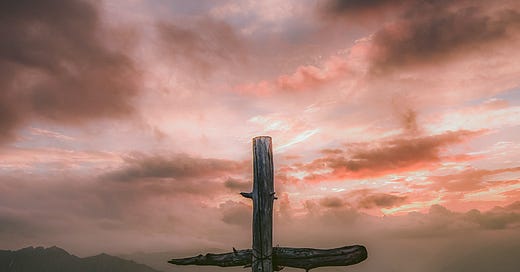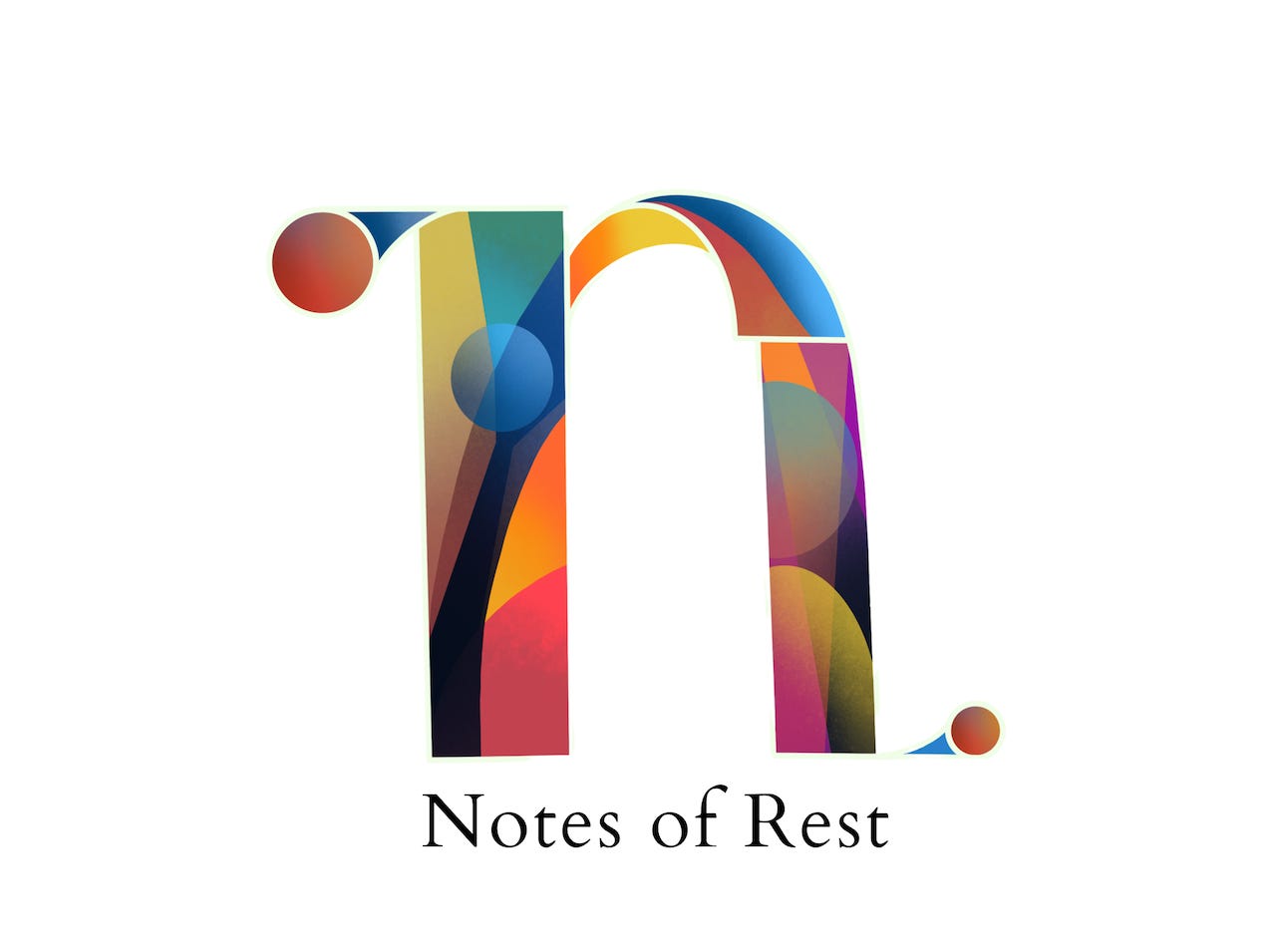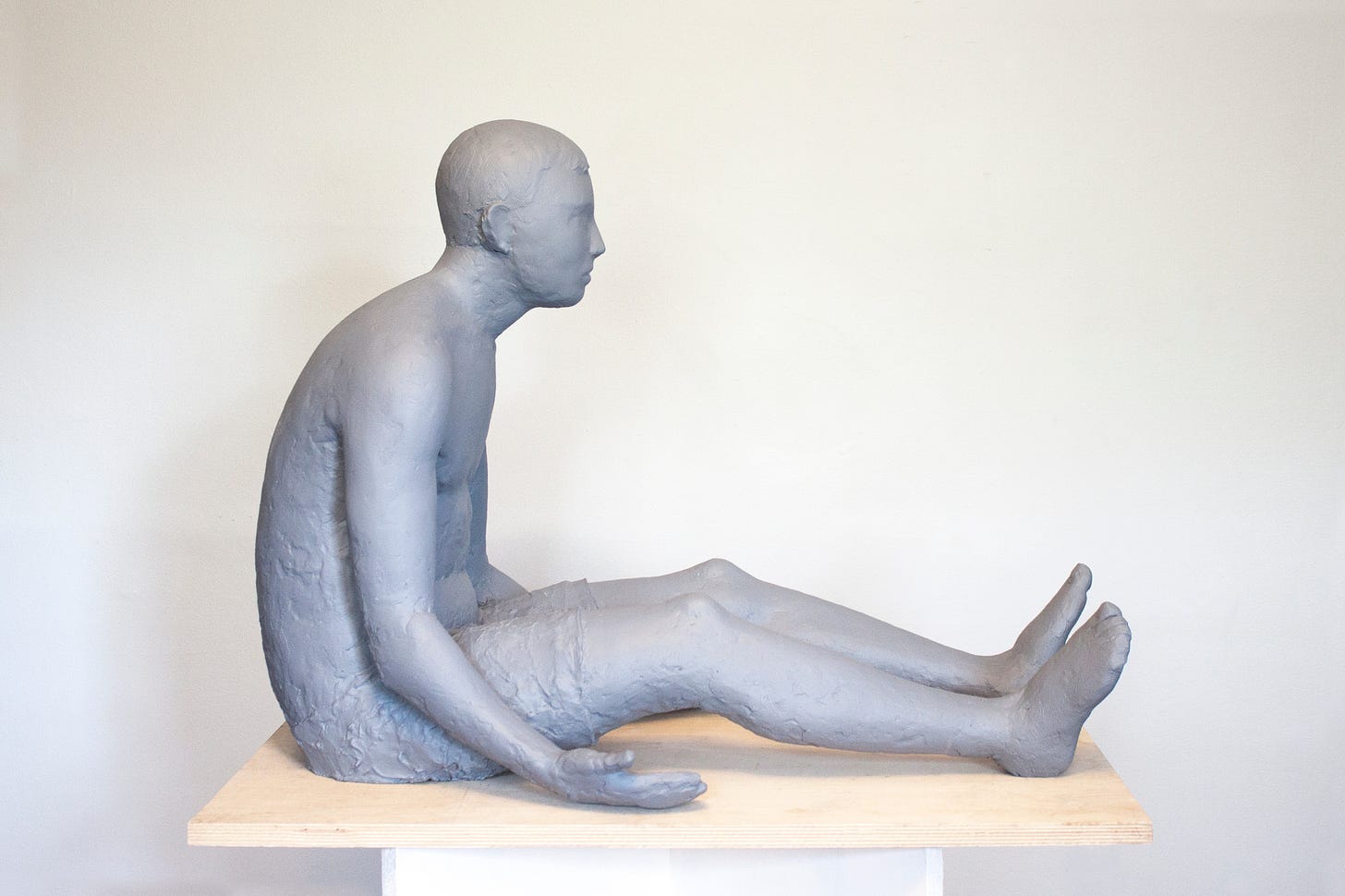Fermata Apr 15, 2022: The Restlessness of Good Friday
Fermata is the weekly newsletter describing some of the past week’s highlights from Notes of Rest, which is my spiritual retreat ministry that interweaves text, music, and questions for the sake of cultivating stillness, introspection, and creativity in communities so that all may rest. I'd love to host a Notes of Rest for your church, seminary, or affinity group. Feel free to reply to this email to start the conversation!
Events to Come:
Holy Saturday at Chicago Presbyterian Church (Apr 16, 2022, 6p central*, 6400 S Kimbark Ave) (*The event is at 6p, not 4p, though the website says 4p.)
Contemplative Outreach Chicago (May 14, 2022, 10a central, Zoom)
Good Friday
Hi everyone,
Today is Good Friday, a day where many members of the worldwide Church observe the death of Jesus. (Orthodox Christians observe it next Friday.) I’m thankful for the wisdom of the church calendar to repeat this observance every year, because it calls me to reflect routinely on why the death of an innocent man - let alone the death of God - would be considered good. Because the calendar of the church always meets the calendar of the world, this year’s reflection is inflected by the massacres in Mali and Ukraine and the shooting in the Brooklyn subway. Put in terms of Notes of Rest, today’s Fermata calls us to reflect on the restlessness of Good Friday.
Traditional Christian faith holds that God in Jesus lived out for us a life free of restlessness. Jesus did not engage in needless conflict. Jesus did not choose the death of another instead of his own (though he was tempted to do so). Jesus did not overwork. Jesus did not refuse sleep. And Jesus did not miss God’s purpose for him. That is, Jesus was the only one to live a thoroughly restful life.
But instead of people simply admiring that in him and making his life the model for all others, he was killed by his own people, the Jews, and the empire under which his people were colonized, Rome. People used religion (Jewish leadership) and politics & military might (Roman leadership) to take out the life of the Rested One, the one who said God’s reign of rest was available to those who would put down their restless ways and draw near. Good Friday reminds us that we have routinely chosen/choose the death of others, including the death of God on earth, instead of letting die in us what needs to come to an end.
Notes of Rest aims to help people introspect about our own place in the grim story of Good Friday. We didn’t physically nail Jesus of Nazareth to the cross, and we aren’t killing Malians, but we practice crucifixion in how we use religion, politics, military might, and other systems (e.g., economics) to call for the needless death of others instead of the needful death of evil that lives in us. We keep the habit of crucifixion when we choose restlessness for ourselves and for others and when we condemn others for choosing restfulness. Good Friday is Jesus’ summons to us to reflect on how we all stand under the weight of our restlessness.
Where do you choose restlessness in your life and encourage restlessness in the lives of others? Where do you encourage sleeplessness, overworking, purposeless living, needless conflict, and an unhealthy relationship to death?
Eoin Burke, “Job” (One of the best embodiments of my posture on Good Friday.)
So again, why is Good Friday called good?
The most comprehensive reason Good Friday can be called Good is because of the resurrection to come, which is what Christians celebrate every year on Easter. Good Friday is Good because God said “yes” to God’s own death and resurrection in order to emphatically say “no” to our continued restlessness. If there is no Resurrection Sunday, Jesus’ death on Friday is just another instance of an innocent man executed by the state. If there is no Easter, Christians should be pitied more than anybody else because of our misplaced hope (1 Corinthians 15). God’s resurrection of Jesus through the Holy Spirit reveals to us that the systems of restlessness that produced Jesus’ death are not the end. The restfulness that God provides in raising Jesus from the dead is even stronger than our greatest attempt to have restlessness win.
The hope of Jesus’ resurrection is the foundation on which I have built Notes of Rest. It is why I declare that “restlessness is contagious, but restfulness even more so.” I only can say that restfulness outweighs restlessness because of my faith that resurrection has come in Jesus and is available to all creation. Even when I host Notes of Rest in secular space and never mention theology, the fundamental premise is still based on my faith-fueled hope in restfulness swallowing up restlessness. Without this hope, Notes of Rest doesn’t really make sense in any deep way, and I should be pitied more than anyone for what I’ve started.
No matter where you are in relation to Jesus, I pray that this weekend provides space for you to consider the restfulness Jesus models and provides. I’d love to hear from you about your musings. Come Holy Spirit.
abundantly,
Julian
P.S. If the story of Good Friday is new to you, I invite you to read Mark 15 for an account of this life-changing death.
P.P.S. This article came across my timeline today about the problems of sleep for working-age Black adults. Restlessness is indeed afoot.
P.P.S. Notes of Rest for University Presbyterian Church (from March 2022) is online if you’d like to check it out. It may be of benefit to you as we transition from the season of Lent into the season of Easter.
Photo by eberhard 🖐 grossgasteiger on Unsplash




